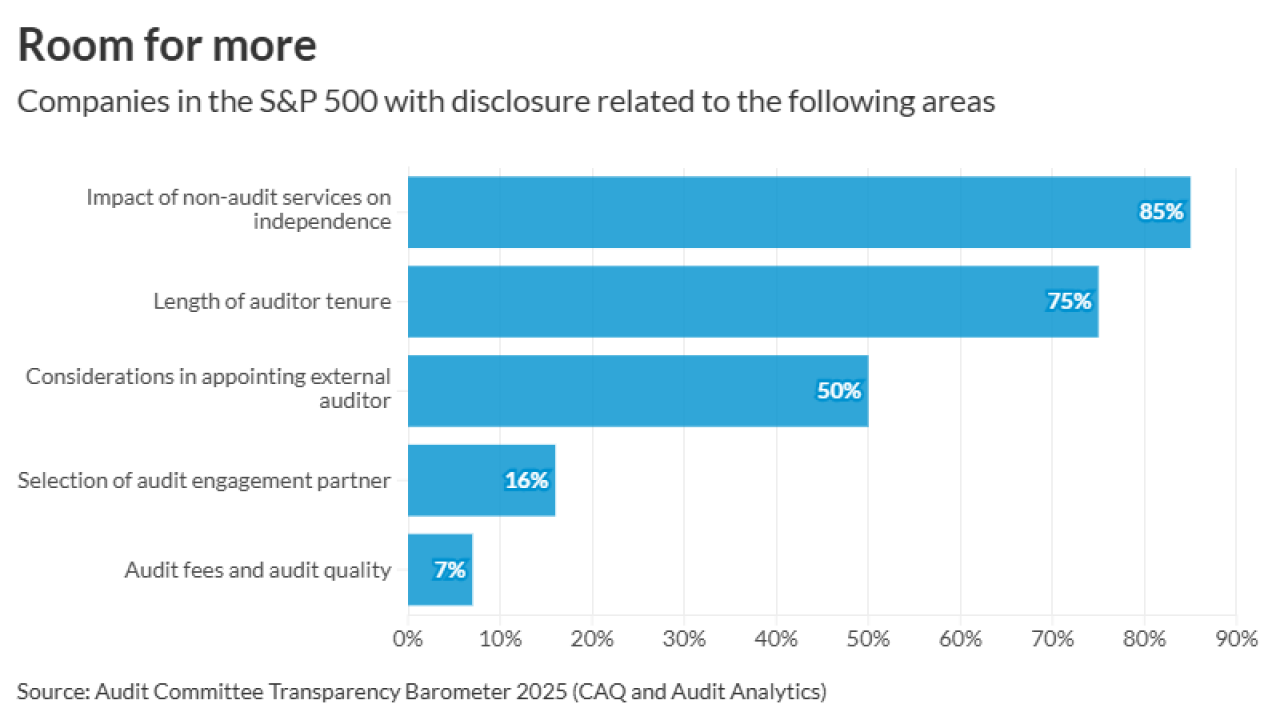The Internal Revenue Service’s initial guidance on the executive compensation deduction won’t settle all of the lingering questions.
Last week, the IRS issued
“What accounting firms need to worry about in part is preparation of financial statements for these companies,” said Andrew Liazos, a partner at the law firm McDermott Will & Emery in Boston. “One of the items in the financials is something called the deferred tax asset. When there’s a liability obligation for a benefit or compensation plan, that ends up in the liability column, but then that liability really has to be balanced against the fact that there are going to be tax deductions that in many cases will be available when amounts that are liabilities get paid, which is the so-called deferred tax asset. When the Tax Cuts and Jobs Act passed, there was a massive job for accountants and tax practitioners to deal with. You had the tax rate changes, and you had legal changes. In that environment people had to consider whether things were going to be deductible in the future or not. A number of companies took positions that, at least in our experience, varied tremendously in terms of how to interpret this law. It is within that environment that this guidance has been issued. There's going to be a need for these companies and their advisors to figure out if adjustments will need to be made to the deferred tax asset accounts. For example a bonus could be payable in ’18 and deductible in ’18, and they might have booked a deferred tax asset, assuming that the whole amount would be deductible. It may be under this guidance that it turns out not to be deductible on the whole or in part, so that needs to be evaluated.”
Companies will need to work with their accountants to decide what adjustments will be necessary now in their executive compensation plans and how they’re deducted.
“If it’s a public company and let’s say it’s a calendar year company, your third quarter is going to end at the end of next month and you’re going to have to do a 10K filing,” said Liazos. “Now that the guidance is out, the question is, is that deferred tax asset accounting correct? The variations on how these things were accounted for did vary because different practitioners took a different view of the 162(m) law, so the guidance that got issued is a fairly strict interpretation of the grandfather rule. There may be situations where people were thinking they were going to be able to deduct amounts that they weren't, so what needs to happen is to compare this guidance to what the basis of your initial position was. And the really hot area right now is with respect to plans that have the so-called negative discretion clause. That’s a situation where a contract says some amount is payable, but the company can reduce the amount that is payable. There’s language in this notice that suggests the skepticism that there really would be some amount that the employee would be entitled to when this negative discretion clause exists. This negative discretion clause is very common in short- and long-term cash programs, and people are going to have to make decisions which could be fairly complicated and difficult in terms of whether they think they can take a deduction on these clauses applicable to those liabilities.”
The IRS notice also provides some detail on who are the “covered employees” who fall under the purview of the executive compensation deduction rules, though it mostly remains the CEO and CFO, as under earlier interpretations.
“That issue in terms of who’s a covered employee has to do with the application of the law going forward to new tax periods,” said Liazos. “It was really dealing with relatively aggressive positions, telling taxpayers who didn’t agree with certain suggestions that had been made. Once suggestion that had been made was whether employees not employed at the end of the year would be a covered employee, and the IRS clearly did not agree with that position. So if you were an executive officer and you are one of the top five people — the CEO, CFO and one of the top three paid people, to be more accurate — if that’s the case, basically they’re going to be covered. They're going to be a covered employee, whether or not you’re employed at the end of the year. I don't think that’s a surprising thing at all, but that was part of the guidance. They also said that if you’re in the tier one of those people, who’s the CFO, CEO or one of the top three people, if it turned out there’s a reason why that information doesn’t need to be reported to the IRS, then you still can be a covered employee. Those are relatively narrow situations. The thing that was difficult that they didn’t address is what happens when these companies combine in mergers, when is somebody going to be a covered employee because at some point these organizations go away and how do you track for that? And that they reserved to a later day. The whole issue of a company employee frankly wasn’t terribly surprising, and it doesn’t really require any immediate action.”
Liazos isn’t sure whether the new guidance is going to have an impact on how the compensation packages offered to their top executives might change as a result of the new tax law.
“It’s not entirely clear how that’s going to sort out,” said Liazos. “There was a concern from some of the institutional investors that companies would go back to providing compensation that wasn’t truly performance based, and there were signals sent out from the ISS [Institutional Shareholder Services], for example, that if you were putting equity plans in place that really didn’t have performance goals that they would be inclined to vote against those programs. Our sense is that basically there were relatively few companies that made significant changes to their plans that related to tax reform. When you consider the fact that the law was passed in December and most companies make decisions on compensation in February and March, there just wasn't enough time. But I do think you are going to see certain influences that this act has. Options already had been somewhat disfavored generally in most industries, and the effect of having even greater amounts be nondeductible is something that people have talked about. One of the areas where it could be changed is maybe more of an emphasis on pushing compensation out the later years. In other words, somebody leaves, and while they’re still a covered employee, maybe those payments could be less than a million dollars. There’s already some other reasons to have compensation pushed out to later years, so I think we will see some of that. The big concern that the institutional investors had was is it going to be less bonus and maybe more salary? A lot of companies cap salaries at a million dollars because they don’t want to pay nonflexible compensation. I do think for some companies you will see salaries increase now because whether it’s a salary or bonus doesn’t matter anymore in terms of its deductibility, so you may see some companies that are willing to pay more salary, but it remains to be seen if there are overall significant changes to plan design.”
Liazos also doesn’t anticipate seeing compensation levels for top executives declining in the near future.
“The other question that we get asked is whether compensation will go down because it won’t be deductible? We haven’t seen that yet,” he said. “The market to get top executive talent is very competitive, so we’re not anticipating a significant decrease in compensation levels. In fact, with the economy performing as well as it is, right now we’re anticipating compensation levels are going to go up.”






